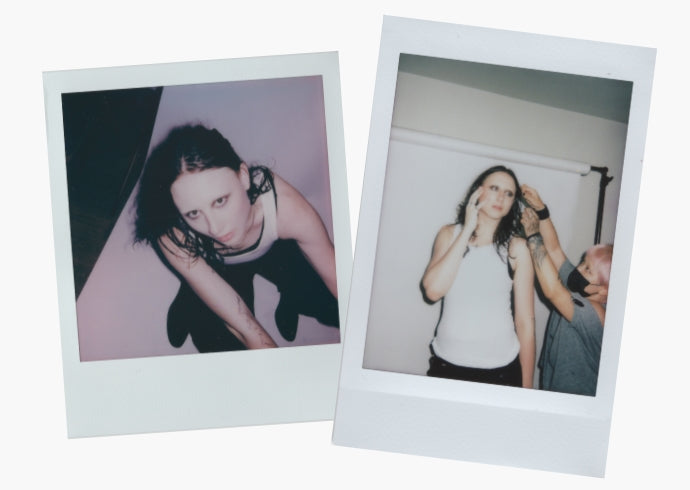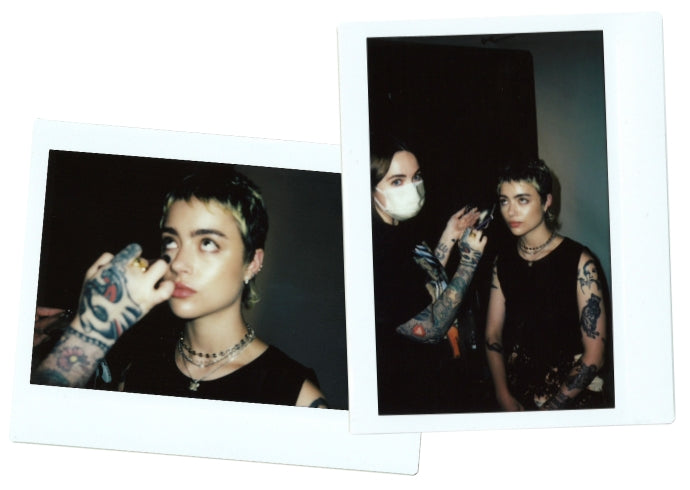How do you relate to your APIDA heritage?
The answer can be loaded, depending on who you ask and their specific experience. Contrary to what some may believe, growing up Asian, Pacific Islander, or Desi isn’t a monolithic journey. This would have come as a surprise to my former classmates in Mississippi. Growing up, they often confused me with my best friend (who is half-Filipino like me), assumed Filipinos were one and the same as other East Asian backgrounds, and filled my memories with other microaggressions I ended up unpacking years later in therapy.
Being asked “What are you?” over “How are you?” was an almost daily occurrence, and navigating two different cultures was a tall order, not really knowing if I was doing right by either. Relating to my own Filipino-American heritage was strained at times, but I was always proud to be Asian, and even prouder now.
May marks APIDA Heritage Month (also known as Asian Pacific Islander Desi American Heritage Month, AAPI Heritage Month, or Asian Pacific American Heritage Month), which celebrates the contributions Asian-Americans, Desi-Americans, and Pacific Islanders have made to this country. At the same time (and in the same country), anti-Asian hate crimes and racism are at an all time high. Between March 19, 2020 and December 31, 2021 alone, 10,905 hate incidents against APIDA persons were reported to the Stop AAPI Hate organization.
That number only increases when you consider the amount of incidents that have happened since the end of 2021 as well as the violence that goes unreported. These acts of hate are unfortunately nothing new in our history, which also contains the violence of Vincent Chin’s murder, the incarceration of Japanese-Americans during World War II, and the erasure of many of our communities.
Now more than ever is a pivotal time to shine a light on our stories. We do not live a singular, monolithic experience—our stories are varied, colorful, and so damn beautiful. Our contributions to the world are important, and not only are worthy of taking up space, but should be commemorated and uplifted.
To hold space for these stories, Milk Makeup spoke to nine APIDA creators on what beauty means to them, how they celebrate their heritage, and what they’d like allies to realize about their experiences.
Janice Tran (she/her), CreativeHow do you identify?I identify as Vietnamese American. What's your relationship with your APIDA identity?This is a huge question! My relationship with my identity is something I’m only recently starting to understand. It’s a long and winding journey. I’d love to say I fully appreciate my Vietnamese background, but because there’s a duality having been raised in the U.S, I regret that I’m not completely immersed in Vietnamese culture. Growing up in a predominantly White and Western society has resulted in a lot of self-hate. I used to avoid being in the sun because I wanted my skin to be as light as possible so I could benefit from the same privileges white people do. I didn’t want to stand out, I was quiet and agreeable even when I felt like speaking out. I blindly played the role expected of me as an APIDA person at school, in the workplace and even at home. I counted myself lucky to enjoy whatever privileges I could gather having assimilated as best I could. In doing this, I felt lonely without realizing where that loneliness was coming from. Then, I read The Best We Could Do by Thi Bui and watched Turning Red. I’d never cried so hard reading a book or watching a movie, let alone a Disney film! They illustrated my feelings at a time when I couldn’t describe them myself. To have the strange, deeply buried sensation that I didn’t belong. It reminded me of the very poignant moment in grade school when I was learning about the Vietnam War. |
 |
In my History class, the viewpoint drilled into me was anti-Vietnamese. But when I visited a museum in Vietnam, their information was anti-American. Obviously, I stood with my father’s birth country, but if I were to go home and voice this, would it make me a bad American? Did I deserve my American privileges if I sided with my family? The Best We Could Do and Turning Redwoke me up to an existence that is neither here nor there. In America, I’m not American enough. To Vietnamese people, I’m not Vietnamese enough. I became hungry for this feeling of being seen and understood.
So now I’m in a stage of my life where I’m wanting to learn more about the Vietnamese side of me. The people, the food, the history. I feel it’s my duty to heal these traumas by embracing what it means to be Vietnamese American, so that we as a society don’t pass them onto future generations. I’ll never be entirely Vietnamese or entirely American; I am Vietnamese American. And my relationship to it is a journey that brings me to myself.
What was APIDA representation like for you when you were growing up?
Growing up, the media rarely showed me people who looked like me. If they did, it was in less desirable roles like side characters, social outcasts, or villains. So I became focused on assimilating to the more-represented characters, thereby stuffing down any feeling of individuality, any feeling that I deserve my own space to thrive. Even as I write this, my brain is comparing my struggle to those of people even more underrepresented in the media, perhaps so I can invalidate my experience and continue being quiet and agreeable. Continue being invisible. It’s a vicious cycle. One I am still very much dealing with despite how the media is starting to change.
Today, in addition to trying to comprehend these tangled thoughts and feelings, it’s become a catalyst for me to do what I can to uplift my own community. I’m happy that APIDA representation is increasing in the media, but this “space to thrive” that I’ve been refusing myself is one that I can help to create for others. As a senior in my marketing role I actively choose APIDA persons to hire. I recommend APIDA creatives and businesses to anyone who asks. I spend my money on clothing, beauty, and restaurant businesses owned by APIDA people. I’m very vocal about wanting roles in modeling campaigns because I’m an APIDA minority.
Where do you find the beauty in your APIDA identity or experience?
Despite how sad my past makes me feel, I think there is beauty in what I struggled with as a child because as an adult I can understand it more and more, grow through/with it, and ultimately heal. I think it’s beautiful that more and more people are speaking out and making art that illustrates what I once couldn’t put into a coherent thought. I think it’s beautiful that people like me are feeling empowered to connect with their roots and each other.
What's one thing you want allies or the wider world to recognize about the APIDA experience right now?
I want them to know that the APIDA experience is not the same as other underrepresented experiences; it’s different and distinct with all sorts of nuances that should be celebrated. And that we’re not quiet, agreeable, or invisible.
How do you hope the beauty realm can better support APIDA creators moving forward?
Feature us, but not just during this month. Put us in the center of your biggest campaigns. Pay us the rates you pay our White counterparts. Support our small businesses.
Follow Janice on Instagram @janicethitran.
Sarah Y. Wu (she/her), MMU Contributing Content DirectorHow do you identify?I identify as Taiwanese-American. What's your relationship with your APIDA identity?Being Taiwanese-American has always been an inextricable part of who I am. So much of my relationship with myself, how I view the world, and how I move through it have all grown out of this side of my identity. Where do you find the beauty in your APIDA identity or experience?I find the beauty in my Taiwanese-American experience in community. I find the beauty in us coming together, holding space, and having conversations, even though my heart breaks each time these conversations arise out of the necessity of addressing anti-Asian racism. But there are so many people in our community I admire who do the work of making sure that the spectrum of our experiences is represented, that none of us are erased, and that we find ways to heal from trauma. On an individual level, it's a really beautiful experience to hold space in two cultures and communities. Growing up Taiwanese-American, people were always trying to categorize me as one or the other or force me to choose which side of myself I belonged to more. That always felt wrong to me because I experience my identity as something whole; it's not something that can be split. The beauty in being Taiwanese-American is claiming the fullness of that identity and defining what it means for myself. |
 |
What's one thing you want allies or the wider world to recognize about the APIDA experience?
Listen when we speak, and don't assume you know what our experiences are, especially when they're so varied and diverse.
What was APIDA representation like for you when you were growing up?
I know this is not the case for a lot of us, but I grew up seeing faces like mine. My childhood and early teen years were spent in both the US and Taiwan, and the majority of the media I saw growing up was Taiwanese. I have very vivid memories of always watching the evening news on LA18, which serves multiple APIDA communities in Los Angeles in their native languages.
At the same time, there was a bubble feeling to this kind of representation. And when I went into spaces outside of my community, I could sense a pressure to assimilate. But because I grew up able to embrace my full Taiwanese-American self, it wasn't really something that swayed me.
Do you feel representation has changed since then? How?
In some huge ways, yes. I think we can absolutely celebrate the wins of all-Asian casts in Hollywood and more Asian faces in campaigns. I do still see a lot of tokenizing though, and I do still see this tendency toward lumping together all Asians in one category or erasing the Pacific Islander or South Asian experience. There will always be more work to do.
How do you hope the beauty realm can better support APIDA creators moving forward?
Compensate APIDA creators fairly, and work with them in a meaningful way year-round and not just during our Heritage Month. That's generally my belief for how the beauty industry can do better when it comes to all underrepresented creators.
Follow Sarah on Instagram @say.wu.
Riyah Taylor (she/her), Content CreatorHow do you identify?I identify as Asian Pacific Islander. What's your relationship with your APIDA identity?It’s evolving! In full transparency, I wasn’t always proud of it because society made me feel weird for my culture and the way I looked, which resulted in trying to hide it. After years of unlearning and reconnecting with my roots, I am proud and embracing all parts of myself! Where do you find the beauty in your APIDA identity or experience?My experience is unique as a multi-cultural individual and because of it, I was exposed to and appreciate different cultures. What's one thing you want allies or the wider world to recognize about the APIDA experience?Speaking for myself, I’d like everyone to recognize that our experience isn’t one-size-fits-all. As someone who is multi-cultural it was discouraging feeling like I didn’t fit in. I was too tan for the Japanese, not native enough for the Hawaiians, and couldn’t converse with the Filipinos. I went through a mild identity crisis and didn’t feel accepted by those I identified with. |
 |
What was APIDA representation like for you when you were growing up?
Growing up in Hawaii, I was surrounded by many others who looked like me, but when I watched television and shopped for toys, it was entirely different. Back in those days, Bratz were my favorite because they were the only brand that had dolls with brown skin! I loved Disney, Nickelodeon, and the Olsen twins (as I am a twin myself), though I realize now the impact it had on me growing up not seeing others like myself on a commercial level.
In my adolescent years, it was confusing and made me feel as though people like myself didn’t have a place at the table. As for my teens and early adulthood, I found myself trying to be like those I idolized in an attempt to succeed as they have without acknowledging that my experience as an APIDA wouldn’t be the same. I didn’t feel seen and almost hated who I was because of it. I remember wondering why I wasn’t getting the same treatment or results as the next person which led to insecurities and a lack of self-worth. I thought that by being who I am automatically crossed me off the list.
Do you feel representation has changed since then? How?
I am so grateful for the progress society has made. I’ve been working in the beauty realm for over five years now and am always filled with joy when I see fellow APIDA creators taking up space! To see them on billboards, hosting masterclasses, and creating leading beauty brands has been life-changing to say the least.
How do you hope the beauty realm can better support APIDA creators moving forward?
I would encourage continued recognition, space, and respect beyond our Heritage Month! No matter who you are or where you’re from, it should be second nature to see others as equals.
Follow Riyah on Instagram @riyahtaylor.
Zane Chen (he/they), Content CreatorHow do you identify?I identify ethnically as Asian American. What's your relationship with your APIDA identity?Born as a child of immigrants from Fuzhou (福州, Fúzhōu) and raised primarily in Michigan, I carry with me the modge-podge identity of being American-assimilated and Chinese—but sometimes not feeling "Asian enough" in my loss of my parents’ native language and their cultural backgrounds. There are generations of us children of the Asian diaspora, many of my peers who similarly are trying to reconcile and find comfort in their identity. In my move to NYC, I've also been finding community and connections to peers who share my background. And that makes the journey less lonely. What was APIDA representation like for you when you were growing up?First for context, I was born in 1997. My adolescence, luckily in my case, coincided with the rise of the internet, online chat rooms, and social media platforms like YouTube, Tumblr, and MySpace, shortly followed by Facebook and then later Snapchat where I was a late adopter in my high school days. When I was growing up, I read a lot of books, watched Asian television programs (torrented a lot of movies), and had little exposure to Western media outside of magazines and movie releases prior to discovering and having personal access to the world of the internet. I think I was around 10 or 11 years old at the time. |
 |
The internet—and more specifically YouTube—gave me access to creators like Michelle Phan online and the genres and worlds of KPop, JPop, and CPop. It helped make me feel connected to other APIDA people. In the realm of Western traditional print and digital media back in those days, I didn't see many folx, many stories, and people who looked like myself represented outside of class valedictorian/academic excellence (aka class nerd)—TV program roles or action films being the one space where actors like Jackie Chan and Michelle Yeoh were breaking into and making a name for our community.
How did that impact you?
In reflection, I wasn’t acutely aware of the lack of Asian representation in Western media because it wasn’t the only space I had access to due to the existence of the internet. I slowly started realizing the blank space that was there when Western APIDA representation finally started coming into fruition.
There was the notable (but brief) role in Harry Potter and the Goblet of Fire (2005) where Cho Chang, played by Katie Leung, was a romantic interest for Harry. I recall that novel performance of an Asian person not being class nerd and not solely being in an action film as a defining moment where I finally got to see a different role played by an Asian person in Western film.
Do you feel representation has changed since then? How?
Representation has slowly but surely started shifting since then, especially within the past decade. Projects like Moana (2016), Crazy Rich Asians (2018), The Farewell (2019), Parasite (2019), and most recently, Everything, Everywhere, All At Once (2022) have been starting to put more intricate APIDA stories on the map but there is still much more work to be done in this space and much more nuance that we'll hopefully explore moving forward.
How do you hope the beauty realm can better support APIDA creators moving forward?
My hope for the beauty realm moving forward is that we get to dive deeper into not just representing and having APIDA faces in beauty campaigns, but that we get to see and highlight the unique stories and the humans and who we are at the end of the day.
Beyond hope, the reality is, the APIDA community can and will build our own chairs and meeting tables and pull up for our community because we are a tenacious and hardworking group of people who don't know how to do anything other than just that. (I was not class valedictorian for nothing!)
Follow Zane on Instagram @zanejchen.
Nusrat Ali (she/her), Digital CreatorHow do you identify?Ethnically, I identify as Bengali. However, Bangladesh is ethnically diverse and there are other ethnicities in Bangladesh such as Bihari, Chakma, Meitei, etc. who are not well represented in mainstream media. What was APIDA representation like for you when you were growing up?I moved to New York from Bangladesh in 2005 when I was 10 years old. At that time, Y2K was fully booming and we only saw blond, blue-eyed, light-skinned celebrities like Hilary Duff and Paris Hilton on the cover of magazines. Social media wasn't that accessible like today, so pre-teens like me turned to Disney Channel, MTV, and magazines like Seventeen for inspiration. There was little to no South Asian representation in the media. When the media did cast a South Asian, they would put us into the nerdy and undesirable stereotypical trope, which did not help my self-esteem and make me feel like an outcast. The lack of representation in the media made me feel really insecure and undesirable. At that time, I didn’t understand the European beauty standard, but I wanted to have blond hair and blue eyes so badly because that's all I saw in the media. I was always always interested in makeup, but the lack of representation made me feel like there was no space for girls that looked like me. Also, there were only a few makeup brands that were inclusive with their shade ranges. I had the hardest time finding products that didn’t look ashy or chalky on me and that actually suited my skin tone. I didn’t love the skin I was in so I refrained from experimenting with colorful makeup because I thought that girls like me simply couldn’t pull this off. |
 |
Do you feel representation has changed since then? How?
I think there is more work to be done when it comes to representation. We are often made to feel like the supporting character and sometimes brands just include one Asian person to meet their inclusivity quota. I am so happy to see that there are brands that are making a conscious effort now to be inclusive, but we are nowhere near where it needs to be. I hope brands don’t use this month to take advantage of the APIDA creators in order to push more sales and appear inclusive. I hope they actually make a conscious effort even after this month is over to create space and ensure fair payment for the Black and APIDA community so we would feel included.
On a brighter note, things did change a little due to the accessibility of social media. South Asians were able to make their own space within the beauty industry through social media. If it weren’t for Instagram, I would have never had the confidence to be in the skin that I’m in, let alone experiment with colorful makeup looks. I’m really thankful of the community that I have built through this platform and without realizing it, I’ve become the representation that I craved when I was 10 years old. It’s truly a full-circle moment and without the overwhelming support from my community and social media, I wouldn’t have the opportunities that I have today.
Follow Nusrat on Instagram @iiroshnii.
Alyse Whitney (she/her), Digital Creator and Food EditorHow do you identify?I’m a Korean American adoptee born and adopted from Seoul, South Korea at 7 months old and raised in Binghamton, NY. I currently live in LA. What's your relationship with your APIDA identity?I am finally in a place where I feel authentically Korean American. As an adoptee, it was a long journey getting here. I was surrounded by white people (including my lovely parents) in the small upstate town of Binghamton, NY growing up, and in predominantly white spaces in college and workplaces throughout my life. But in recent years, I have embraced my Korean-ness and Asian-ness more through the people I surround myself with, the businesses I support, and the food I cook. I am loud and proud about being Korean American, part of the APIDA community, and part of the adoptee community. Where do you find the beauty in your APIDA identity or experience?As an adoptee, I have always struggled with being “Korean enough” or “white enough” or “American enough.” But I realized that I am not too little or too much—I am just enough. I am authentically and genuinely myself, with a unique experience that no one else has but me. It is beautiful to relate to others through our similarities but also in our differences. I love to uplift others around me who are in the APIDA community but doing totally different things than me for work, and love to collaborate with those who are aligned in values and goals, too. It’s so important to not gatekeep and share and be open with the community because when one of us succeeds, we leave room to pull others up to join the party. And it is a FUN party, where dumplings, karaoke, and boba abound. |
 |
What's one thing you want allies or the wider world to recognize about the APIDA experience?
We are not a monolith. We are not the same. We are not interchangeable. We are all so different with varied experiences that should all be represented, celebrated, and uplifted. My Korean American adoptee experience is my own, but that doesn’t mean that a fellow Korean American’s story should be overlooked because “we already have an Asian,” or “we already have a Korean.” Abundance is important in Asian culture, as is wealth and prosperity. Let’s get that for all of us, not just one of us.
What was APIDA representation like for you when you were growing up?
I was the only Asian person in my graduating class of 164 people. I didn’t really have any Asian friends, and the adoptees who I met were mostly when I was younger and didn’t stay in close touch with. It made me feel like I was alone and on an island, in spite of the support from my parents and having a brother who is also adopted from Korea. I didn’t have anyone to look up to in pop culture, especially on the teen dramas I was obsessed with. (I had Dr. Kim, the dean on The O.C., Lane Kim on Gilmore Girls, Cristina Yang on Grey’s Anatomy, Claudia Kishi from The Baby-Sitters Club, and the yellow Power Ranger.)
Because of this lack of representation, I didn’t aspire to be onscreen or to be a star—I tried to be happy in the background. But my personality is exuberant, joyful, charismatic, punny (and sometimes funny), and overall FUN. So I’ve been able to let that side of myself out as an adult, but I wish I could have been authentically myself and dreamt big as a kid.
Do you feel representation has changed since then? How?
Absolutely, especially in what I call the “post-Crazy Rich Asians” era where more representation has been shown in pop culture, mainstream media, creators, and social media. I see myself represented a lot more across the board, but as a plus-size Korean American, not so much. There are a few phenomenal models who I see in select fashion campaigns for brands I love, but overall being a fat Asian is normally just the butt of the joke in television. My body type and heritage are not celebrated or shown as desirable or sexy, in a way that reminds me of how Asian men talk about not being shown as masculine or desirable. I’d love to see a change, more so in body neutrality than body positivity. My body is my body. Full stop. It’s mine to choose how I look and feel, and to be confident and happy in my own skin. If the world could be less fatphobic and just accept me for me, that would be life-changing.
How do you hope the beauty realm can better support APIDA creators moving forward?
Don’t tokenize us or just celebrate us during “our month.” I appreciate being uplifted and supported during APIDA heritage month, but I want creators to be used for their talents and unique POVs all year long. Differences in body types, backgrounds, mixed races, and embracing other sub-communities (like adoptees, LGBTQIA+, and disabled people) is important. Remember, we’re not all the same, so treat us as separate, unique people with different stories to tell.
I also didn’t know how to do my makeup as a kid because my mom is white and we have different eyes. Monolids are not intuitive to do makeup on. I have found fun, bold, colorful ways to do my eyeshadow—with Korean eyes, monolids, and glasses to overcompensate in pigmentation and coverage for—and winged liner, but I had to teach myself. I would love to see more tutorials for looks that work for monolids.
Follow Alyse on Instagram @alysewhitney.
Paula Andrada (she/her), MMU Influencer Marketing CoordinatorHow do you identify?I identify as a 1st-generation Filipina American. What's your relationship with your APIDA identity?
|
 |
Do you feel representation has changed since then? How?
Representation has definitely changed since I was a kid and I think it’s continuing to evolve in a positive way, which is very exciting. I’m excited to say that my favorite movies have a majority Asian-centered cast and/or the main role was played by someone from the APIDA community. I think this is a big win for our community as the entertainment industry begins to showcase a variety of cultures, versus the ‘standards of beauty’ for ‘typical Asian culture.’
How do you hope the beauty realm can better support APIDA creators moving forward?
It’s great to see companies working with more APIDA identifying creatives, but I think that we need to continue to identify and recognize all cultures that live within the community.
Follow Paula on Instagram @paulagem.
Iley Cao (she/they), MMU Junior Social Media Content CreatorHow do you identify?I identify as Chinese and Vietnamese American. What's your relationship with your APIDA identity?I would say my relationship with my APIDA identity has improved a lot in the past years, especially since leaving my hometown. I grew up in a very white town in suburban Colorado, and I was one of a few Asian students in a class of 600. When I was growing up, I wanted to hide my differences and culture. Thankfully, my parents had taught me the importance of maintaining and preserving our culture and identity. I feel very closely connected and proud of my APIDA identity now and am excited for the future of the APIDA community. Where do you find the beauty in your APIDA identity or experience?There is so much richness and vibrancy in being APIDA. I find so much beauty in the in-betweens of it all. When I was younger, I felt the need to choose one culture or another and felt that I needed to assimilate in order to be accepted. Now though, I feel so grateful to hold multiple identities and I feel like it has allowed me to connect with people in my communities on a deeper level. While I have learned a lot, I am still always learning how to navigate between different cultures as I grow. |
 |
What's one thing you want allies or the wider world to recognize about the APIDA experience?
I want allies to recognize and hear our stories and to know that we aren't a monolith. There are so many experiences within the label of APIDA, and the world should be open to listening. Society and media has painted a very narrow portrait of APIDA folks, and it has led to violence, stereotypes, microaggressions, and the idea that Asian people are perpetual foreigners. We also need to protect Asian elders and femmes, and those that are most vulnerable in the community.
What was APIDA representation like for you when you were growing up?
It was practically nonexistent. Like I mentioned, I grew up in a predominantly white environment, where there was little to no representation. Even in the media, I never saw people who looked like me or had relatable stories. I think later on, it definitely got better once I had access to the internet (mostly YouTube in the early days). I was exposed to creatives who are APIDA (shoutout to Wong Fu, Anna Akana, Ryan Higa, Jenn Im, etc.) and recognized that we could make our own spaces to tell our stories.
How did that impact you?
I think it definitely caused me to question the importance of my identity and culture because I didn't have an example of how to navigate it. Since I didn't have stories being told that I could really relate to, I felt disconnected from my identity while having a sense of confusion as to where I fit in.
Do you feel representation has changed since then? How?
I feel like representation has changed, but I think that there's still a ways to go. There have been so many amazing films, books, and media lately that are telling APIDA stories (Everything Everywhere All At Once, Minari, On Earth We're Briefly Gorgeous, The Farewell, to name a few). These are the stories that I wish I saw growing up, and it makes me really excited and hopeful for APIDA youth.
How do you hope the beauty realm can better support APIDA creators moving forward?
I hope that the beauty realm can better support APIDA creators by highlighting our stories and voices while also recognizing how Asian cultures influence the beauty landscape. For example, gua sha is a traditional Chinese practice that only recently has become popular over the years, but there is little acknowledgement about the cultural heritage and history that it carries.
Follow Iley on Instagram @iley.c.
Danielle Odiamar (she/her), MMU Social Media & Influencer Marketing Project ManagerHow do you identify?I identify as a first-generation Filipino American. What's your relationship with your APIDA identity?It’s a huge part of who I am. I’ve never been ashamed of my background, but I’ve always been hyper-aware of how other people treated me based on it. I feel so blessed to be a first-generation Filipino American because my upbringing was truly a blend of two cultures. It wasn’t always easy, but my Asian American identity makes me feel like I am part of two worlds that have become one. I see the nuance of both cultures and can take the best of both. Where do you find the beauty in your APIDA identity or experience?There are too many ways to count, but my immediate thought goes to happiness and family. There’s something innately special about Filipino culture that centers joy, celebration, and community in everything we do. So many non-Filipino people have told me that they have experienced such welcoming love and care from the Filipino people they know in a variety of ways and that always makes me proud. “We’re good people” is always my response, and we are! We just want everyone around us to feel embraced and included, and that’s so beautiful to me. |
 |
What's one thing you want allies or the wider world to recognize about the APIDA experience?
I feel that the wide range of APIDA experiences is downplayed, like we are a monolithic stereotype of whatever one thinks Asian people are. Every culture, every ethnicity, every language, every person is unique. Yes, there are aspects of our culture that unite us, and that’s beautiful. But each group deserves and needs support, protection, and resources specific to their experiences.
What was APIDA representation was like for you when you were growing up? How did that impact you?
I had a very privileged upbringing growing up in the suburbs of New York, and there’s no doubt it was a blessed experience. But what we lacked was connection to a larger Filipino community. I’m so lucky we had extended family nearby to see regularly, but everyone else around me was white. And while I wasn’t bullied or shunned, it took a lot of different experiences and microaggressions to adjust my mind set and really center my Asian identity as a central part of who I am and how I show up in the world. I have distinct memories of realizing that for a lot of people, I could only be accepted based on how much I can match their beliefs of what I should be.
APIDA people get the reputation of being the “good minority,” and it can be easy to want to fit that mold to assimilate and not make waves. It can be advantageous in some ways to adopt that identity, but you lose parts of yourself too. I realized, thankfully, at a young age that that was not how I wanted to live my life, and I’ve continued into my adulthood wanting to find more ways to connect to my heritage.
Do you feel representation has changed since then? How?
Yes I do, and I’m glad and so proud. My professional background is in media, and I’ve always loved pop culture, so to see how many movies, shows, books, and musical acts center around APIDA people and experiences is amazing. It’s truly amazing how far we’ve come since I was a kid. Of course there’s still work to be done. The fact that I’m still surprised and delighted every time I see instances of APIDA representation is proof of that. But I'm hopeful for the direction we’re going. When it becomes so second nature to see our people and our stories everywhere, that will be amazing.
How do you hope the beauty realm can better support APIDA creators moving forward?
Beauty standards have shifted so much, and I’m glad to see an increasingly diverse perspective when it comes to promoting certain features as beautiful. That being said, it comes with instances of fetishization, tokenism, and appropriation that can feel frustrating despite good intentions. I think the best thing the beauty industry and all industries can do is uplift APIDA people and let us take the lead. Pay us equitably, promote us to higher positions of leadership, listen and empower our opinions to enact real change, and give us the space and the platform to lead conversations around what’s important to us. That way we can honestly and accurately spotlight a diverse range of APIDA identities.
Follow Danielle on Instagram @danielleodiamar.
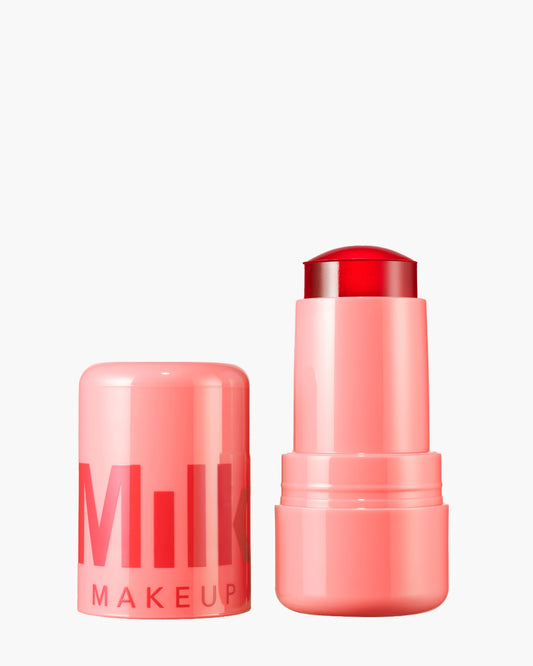
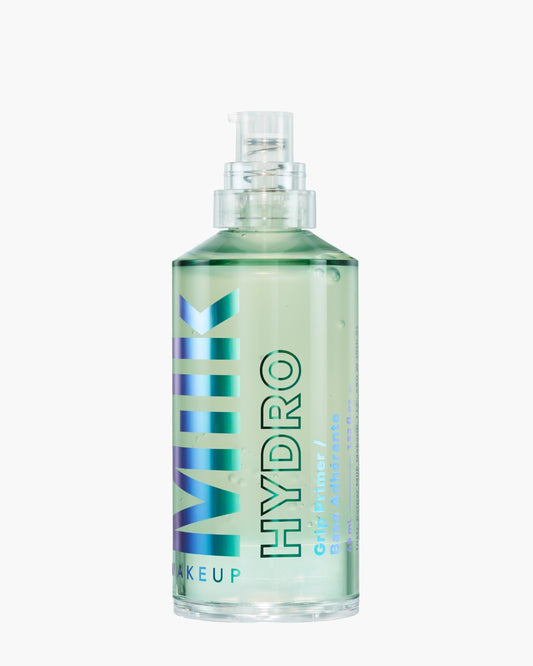
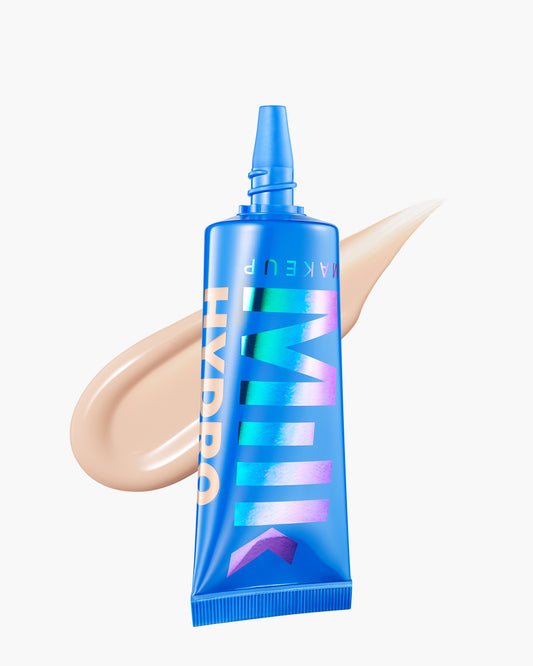
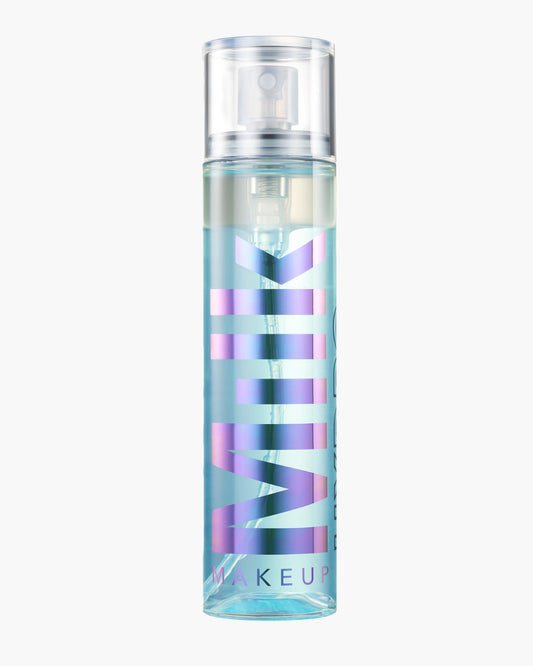
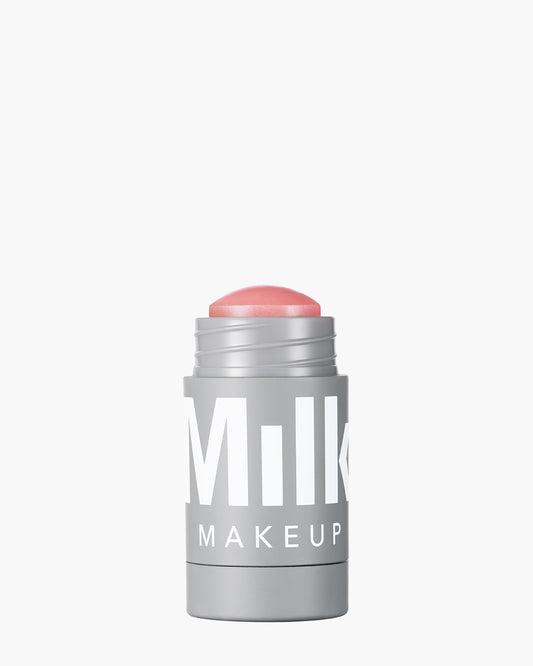

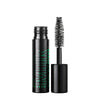
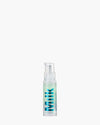

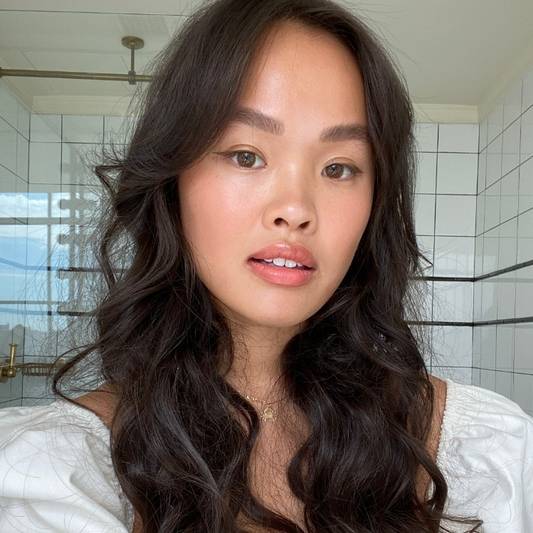
-v1718121667271.jpg?1000x1500) "
"